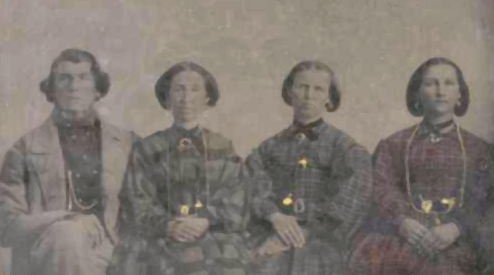In Davis v. Beason, 133 U.S. 333 (1890), the Supreme Court upheld an Idaho law directed at Mormons that withdrew the right to vote from individuals who refused to take an oath swearing that they did not participate in or advocate polygamy.
Court upheld law withholding right to vote from polygamists
Writing for the Court, Justice Stephen J. Field referred to bigamy and polygamy as “crimes by the laws of all civilized and Christian countries.”
He observed that the practices “tend to destroy the purity of the marriage relation, to disturb the peace of families, to degrade woman and to debase man,” noting that “to extend exemption from punishment for such crimes would be to shock the moral judgment of the community.”
Field’s decision is notable for its definition of “religion,” which he wrote “has reference to one’s views of his relations to his Creator, and to the obligations they impose of reverence for his being and character, and of obedience to his will.”
Field acknowledged that the First Amendment allows every American “to entertain such notions respecting his relations to his Maker and the duties they impose as may be approved by his judgment and conscience, and to exhibit his sentiments in such form of worship as he may think proper, not injurious to the equal rights of others, and to prohibit legislation for the support of any religious tenets, or the modes of worship of any sect.”
Court said religion ‘must be subordinate’ to the law
Having so argued, Field added, “However free the exercise of religion may be, it must be subordinate to the criminal laws of the country, passed with reference to actions regarded by general consent as properly the subjects of punitive legislation.”
He placed laws against polygamy in the latter category. Citing the decisions in Reynolds v. United States (1879) and Murphy v. Ramsey (1885), he observed that “laws are made for the government of actions, and while they cannot interfere with mere religious belief and opinions, they may with practices.”
Field defined polygamy as a practice and compared it with the practices of child sacrifice and suttee.
In a note appended to the decision, the Court observed that “the constitutions of several States, in providing for religious freedom, have declared expressly that such freedom shall not be construed to excuse acts of licentiousness, or to justify practices inconsistent with the peace and safety of the State.”
The Court quoted from New York’s constitution, but noted that 12 other state constitutions contained similar provisions.
John Vile is a professor of political science and dean of the Honors College at Middle Tennessee State University. He is co-editor of the Encyclopedia of the First Amendment. This article was originally published in 2009.

